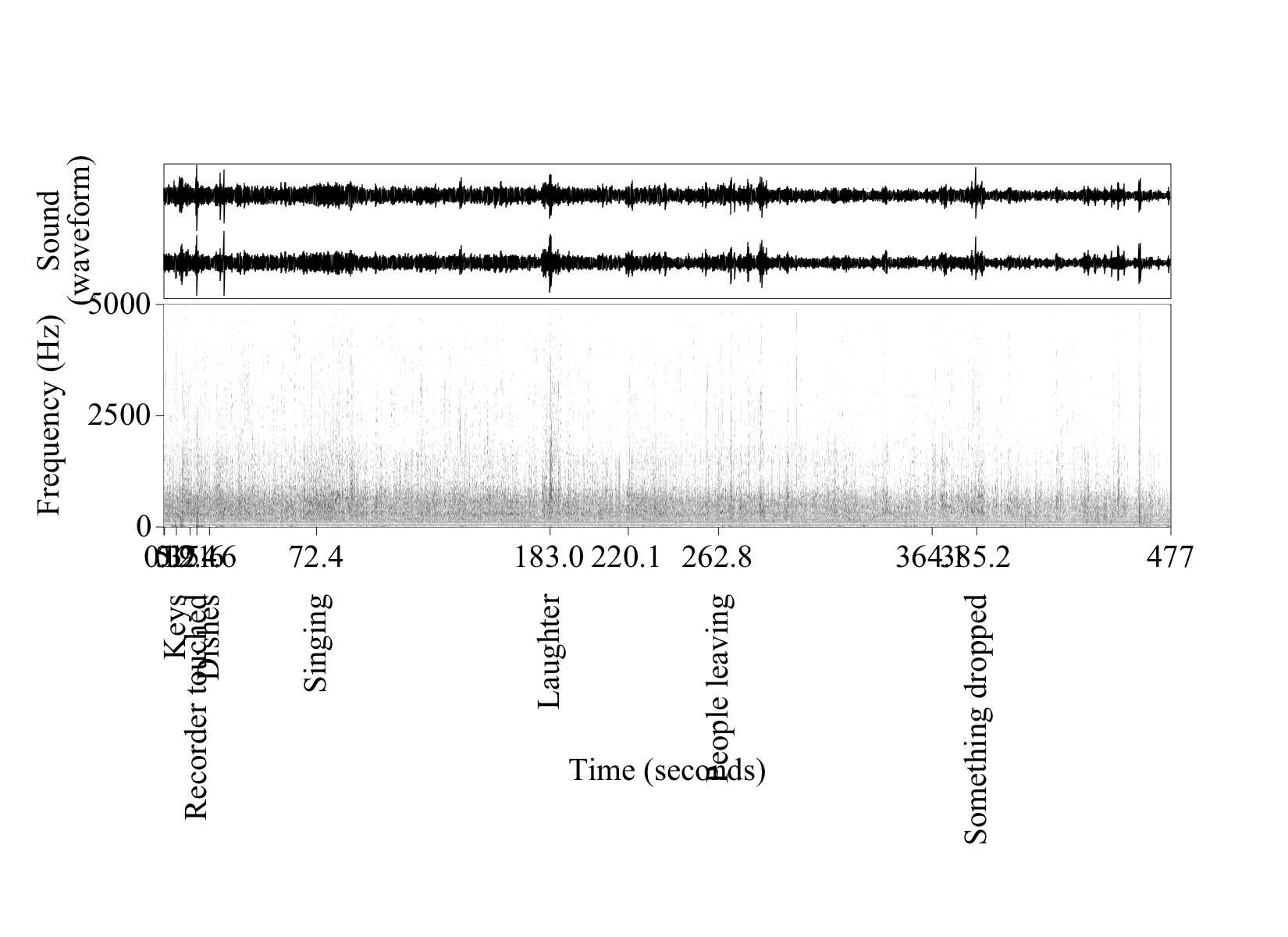
Loading map...

Oldenborg Dining Hall at noon is a rich soundscape that clearly shows the human aspect of sound. On a surface level, Oldenborg is a clear example of how people across the world verbally communicate. Nowhere else on campus can one hear not only the sounds of people speaking, but speaking in so many different languages at the same time. On a deeper level, Oldenborg serves as a reminder that the majority of languages are sounds made and used by humans to communicate. The verbal buzz at Oldenborg captures just a few of the complex, unique sound-based systems that humans use to connect with one another, depicting the close connections that humans inherently have with each other and with the phenomenon of sound. Thus Oldenborg Dining Hall is a necessary addition to the soundmap of Pomona, as it showcases the diversity and importance of human-created sound in the form of language.
This recording was taken starting at 12:56 PM on October 29th, 2018 by one of the French tables located near the stage within Oldenborg Dining Hall. In the recording, one can hear people speaking French, the general background noise of people speaking different languages at the other tables, and people eating. The sounds of language can be fast and fluid when spoken by native speakers, or slower and more hesitant when spoken by beginners. Notably, at the time of the recording, people were beginning to leave the dining hall to go to class, so the volume throughout the recording gradually lessens. One can hear clinking plates and keys as people get up to leave. Eventually, everyone left the French table that the recorder was placed next to, and one can hear people speaking Chinese and English at other tables nearby.
In the recording, one can hear signals, sounds that dominate over the other sounds in the soundscape and are listened to consciously. These signals often occur in the form of laughter, singing, or of loud greetings between tables, when friends shout “hey!” to each other in different languages just to get each other’s attention for just a quick moment. Additionally, one can hear the keynotes of the situation—that is, the fundamental sound of a situation—which are the sounds of utensils and plates as well as the sounds of languages. The two intertwine to represent the key components of Oldenborg Dining Hall: food and language.